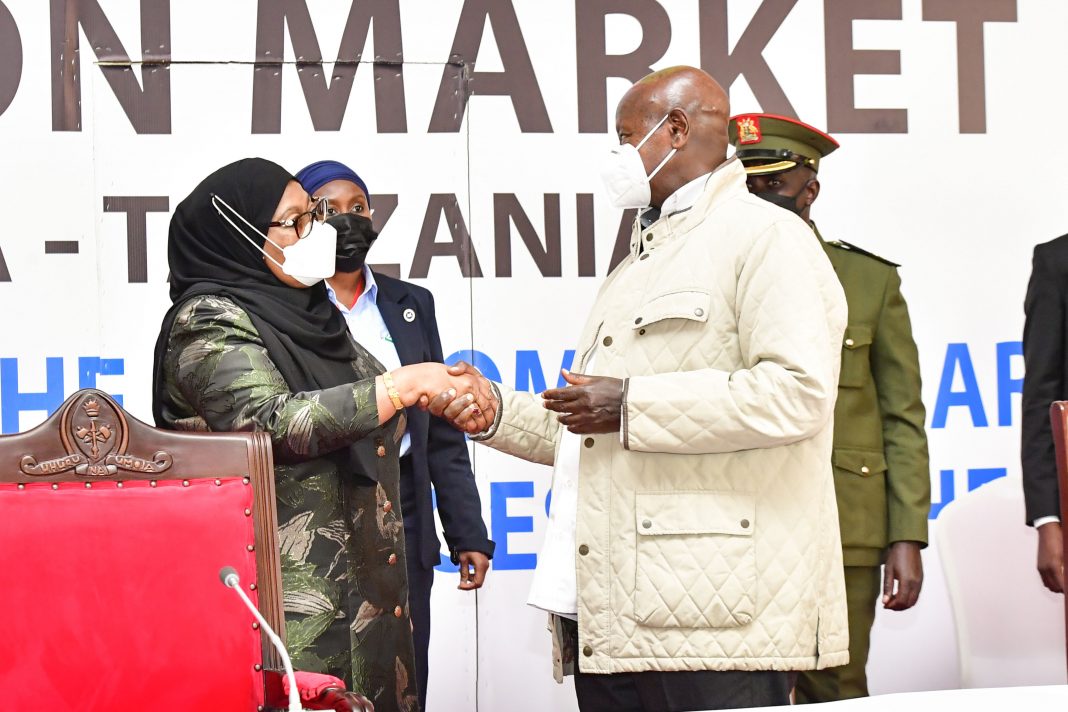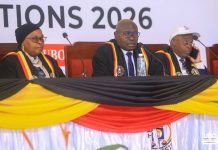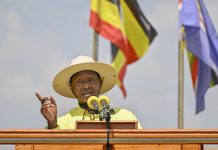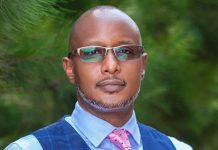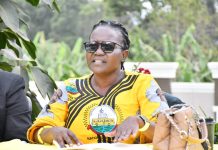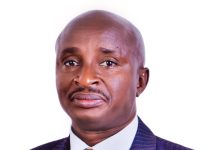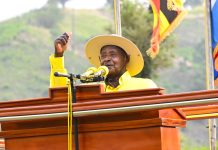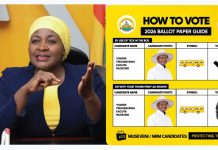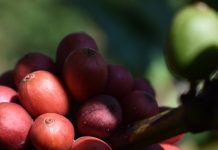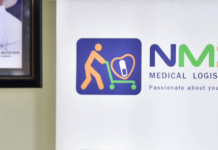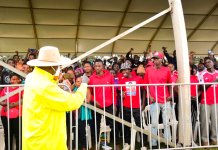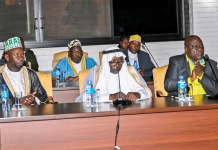“There is no way in modern economies where you can achieve prosperity without markets. If the producers of goods and services can have more people who buy from them, the better,” President Yoweri Museveni has said.
This, while addressing a high-level retreat for the East African Community (EAC) Council of ministers under the theme, “11 years of realizing the commitments of the EAC Common Market Protocol: A reflection on the achievements, opportunities, challenges and the journey ahead.”
President Museveni cited the USA which he said is prosperous because of a big market size while Latin America is also big but disintegrated and disorganized.
“If you want to see laboratories of success or failure you have two free samples: the US which is relatively new but is rich and powerful because of market size. Next to them is Latin America which is rich but poor and disorganized. See how people are suffering. Flocking to the USA!” he said.
Museveni said the push for integration is not political but for survival.
“Integration is not just politics but for survival. I am glad the private sector is coming on board,” he said.
The President arrived in the Tanzania City of Arusha for the High Level retreat for the summit on the EAC Common Market this afternoon and was received by the Chair person of the EAC Council of Ministers Ms. Maina Betty the Ag. Cabinet Secretary Ministry of East African Community and Regional Development and the EAC Secretary General Peter Mathuki.
The meeting is being attended by President Uhuru Kenyatta, the current Chairman of the EAC Heads of State and President of the Republic of Kenya, the host President Samia Suluhu Hassan, President of the United Republic of Tanzania, President Gen. Evariste Ndayishimiye of the Republic of Burundi, Hon. Edouard Ngirente the Prime Minister of Rwanda representing President Paul Kagame, Hon. Jean-Michel Lukonde the Prime Minister of the Democratic Republic of Congo representing President Felix Tshisekedi, President Hassan Sheikh Mohamud, of the Federal Republic of Somalia who is a special guest and Hon. Dr. Barnaba Marial Benjamin the Minister in Charge of the Presidents’ Affairs of the Republic of South Sudan, representing President Salva Kiir among others.
President Museveni cautioned that the issue of policy on trade among member countries can make people fail and must be addressed if integration is to be achieved.
“For example, Uganda easily produces food, some seasons it’s a lot. Because of the Non-tarriff barriers (NTBs), even with a lot of maize and sugar, it cant be sold easily in East Africa. Because of that farmers leave and go on to other things. Now if there is crisis, we say no sugar..but the farmers moved on! We should be very strict on policy,” Museveni said.
He also gave an example of rice trade between Uganda and Tanzania.
“There is inefficiency. Rice growers in Uganda were asking me to put a tax on rice because Tanzania was growing rice cheaply. I told them to drop that nonsense. How do we force Uganda to buy expensive rice. Let the market be free. If you can’t produce rice in Uganda, you migrate to Tanzania!” he said.
On the issue of Covid-19, the crisis did a wonderful job in waking the region up.
“COVID-19 was good. It taught us that if you are foolish you will die. It also revealed what some people are like. I am a Christian and we asked other Christians to help with vaccines but they told us to first wait. But Christianity says love your neigbour as you love yourself. It’s good that we had this crisis. It was a problem but also an opportunity, we can now exploit the pathogenic economy. We did it with AIDS by making our own ARVs. Now we are doing research on vaccines for humans, therapeutics, diagnostics etc and have created money and jobs. We must begin making all those vaccines, medicines and even non-medical materials here in East Africa,” he said.
On the issue of fuel crisis, President Museveni said the continent must minimize the use of fuel since it is still very expensive.
“The fuel crisis is also another opportunity. In Uganda we had started making electric cars – prototypes. They are called Kira. We must now upgrade this project of making electric cars and minimize fuel. Besides electric car development we have petroleum plans. But even before the Ukraine War petroleum prices were already going up because of fears of no demand in future, which slowed production. We must migrate from petrol and diesel to electric cars,” he said.
President Museveni said Africa must unite and integrate to exploit the opportunities.
“If we integrate, unity is very crucial. All opportunities are there and we shall take advantage of them but with a strong market,” he said.
President Uhuru Kenyatta of Kenya said the region must work towards a common market.
“Arusha is not a Geneva. Arusha is the heart of Africa. We do not want to compare ourselves to other people. If Arusha beats properly we will keep going well. Arusha no roho yetu. “We must be able to communicate across East Africa, that’s why we have invested so much in infrastructure linking the countries. In a short while H. E. Suluhu will visit her counterpart (it won’t be me!) to launch another.”
“There are some people who prefer for us not to be interlinked because they don’t want us to progress. They want to take our raw materials and bring them back as finished goods. They want us to remain markets for them.”
President Samia Suluhu Hassan of the United Republic of Tanzania called for more modern agro production.
“Yes – we need to increase the amount of land under food production and can double it but we cannot focus on land alone. We should also focus on irrigation, for instance. And access to finance and mechanization, she said.
President Suluhu said decreasing post-harvest losses and improving local storage systems will help farmers produce more.
“We should also have proper agro-processing,” she said.
The Common Market is one of the 4 pillars of Regional Integration, which has been in force since 2010, in line with the EAC Treaty provisions.
The protocol aims at accelerating the EAC economic growth, EAC Partner States must maintain a liberal stance towards;
The Free Movement of goods and services, Capital, Persons, Labour/ Workers and the Right of; Establishment & Residence.
EAC partner states have eliminated internal tarrifs on locally produced goods with a growth in intra-EAC trade now at US$5.9billion in 202 up from US$3.7billion in 2010 according to EAC Secretary General Mathuki.
The two-day summit will also see the Heads of States open a key 42-kilometre Arusha Bypass, one of the major road projects to be successfully completed under the EAC cooperation.
The President is accompanied by the Second Deputy Prime Minister and Minister of EAC Affairs Hon. Rebecca Kadaga, the Minister for the Presidency Hon. Milly Babalanda and that of Security Rtd Major. Gen. Jim Muhwezi among others.


